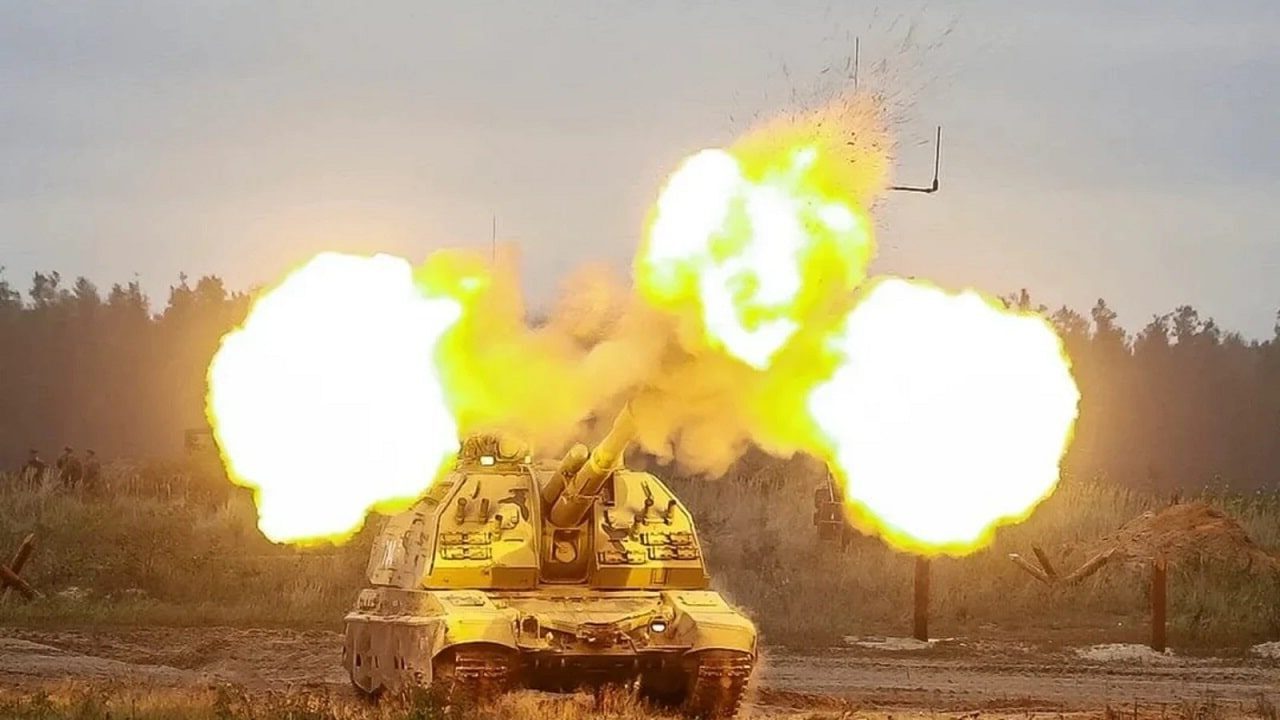Robert Farley

How goes the technology war against Russia? Immediately after Russia began its invasion of Ukraine, the United States and an alliance of other countries established some of the most aggressive technological sanctions in history against Moscow.
In some ways, this resembled the effort to strangle Russian technology during the Cold War, cutting the Soviet Union off from development in international technology was central to U.S. grand strategy during the Cold War. Indeed, isolating the Soviets was one of the most consistent aspects of a U.S. containment policy that varied widely in its application.
Chip Reliance Breaks Under Cold War-Esque Sanctions
The Truman and Eisenhower administrations came to the conclusion that cutting Russia off from technology would have a long-term detrimental effect on Soviet economic power, and consequently on Soviet military power. The same calculation is in play now; the sanctions are intended to cripple, in the long-term, the growth of Russian science and technology.
Analysis of captured and destroyed Russian weaponry in Ukraine has demonstrated that Russian equipment is deeply dependent on computer chips produced in the West. Even the most autarkic country in the most autarkic of industries cannot avoid integration and interdependence. But while the effects on Russia’s military are important, they aren’t the main story.
Russia wasn’t going to be able to replace its battlefield losses with new production. So slowing Russian tank construction won’t be decisive. Rather, the important question is the long-term impact on Russia’s ability to compete technologically. The main impact will be on the civilian sector, not the military. Some of the effects are already being felt; the Russian airline industry is suffering from the effects of sanctions, and will likely hurt even more over the coming months as spare parts run short and maintenance time runs thin.
Can China help? Maybe.
If China decides to commit to supporting Russia at the expense of its relationships in the West, it could solve some of Russia’s problems with technology availability. However, the Chinese have to this point displayed a great deal of sensitivity about being targeted by Western sanctions. China’s technology firms remain deeply integrated with the global economy and don’t want to cut themselves off from global markets.
The relationship between the Chinese government and the private firms that make up its tech sector is complicated. It’s not obvious that Beijing could force the industry to support Russia even if it wanted to. Given the choice between Russia and the world, China may prefer the world. Moreover, Russia sourced its chips from the West and not from China for reasons; Chinese technology simply isn’t as competitive. Finally, China isn’t above taking advantage of Russia’s situation by hacking Russian technology companies.
Russia Digs Deeper Into a Hole
Russia probably hasn’t helped itself by abrogating its international intellectual property protection obligations. In the short-term, the promise of simply appropriating Western IP surely sounds very appealing to Russians; in one move Moscow can stick it to the West, hurt Western technology companies, and distribute some goodies to well-connected companies. But the Chinese companies that Russia will depend upon will absolutely not have a sense of humor about Russian violations of their intellectual property rights, and the fact that Moscow has decided to be cavalier about IP protection may dissuade Chinese tech firms from engaging with the Russian market.
The scientific war of attrition against the Soviet Union during the Cold War was fought on both a physical and an intellectual level and involved significant restrictions on the ability of Soviet students, scientists, and engineers to study in the United States and in other Western countries. U.S. policymakers have certainly floated the possibility of restricting visas issued to Chinese students for study in the United States, especially in high technology fields, and plenty of U.S.-based universities took steps to curtail their cooperation with China.
At least one congressman suggested kicking Russian students out of the U.S. (some 5,000 study here), but as of yet, there’s been little follow-up. The travel of Russians has by and large not been limited in any formal way, although it has become physically difficult for many Russians to travel because of the aforementioned airline problems. Of course, we no longer live in the technological reality of the 1950s; data flow far more easily now, and the ability to be in a specific location isn’t nearly as important as it was in the Cold War. There’s probably not much point to attempting to exclude Russian students, scientists, and engineers from the West, even if doing so does not represent a basic abrogation of liberal, cosmopolitan values.
Russian thinking on the implications of this war remains unclear. Did Moscow anticipate the volume of Western sanctions, price them into the invasion, and decide that the benefits outweighed the costs? Did Putin believe that the war would be over quickly and that the West would simply forget? Or does Russia have a plan for navigating the sanctions regime that will enable it to access the technology it needs while building domestic capacity? These are questions that cannot be answered in the short term.
No comments:
Post a Comment